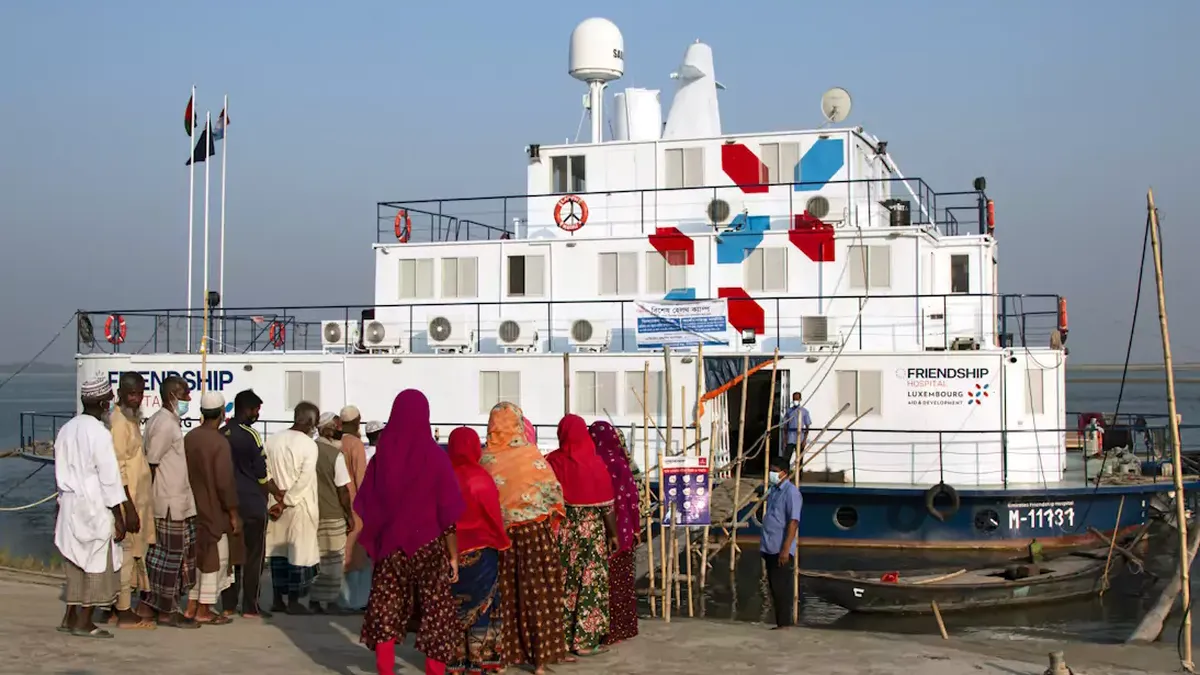Some 160 pupils from seven secondary schools in Luxembourg took part in the 2025 edition of the Friendship Connected Schools programme that connects secondary schools students from Luxembourg and Bangladesh around climate change matters.
Luxembourg will also host four students from the most marginalised communities in northern Bangladesh from 15-19 June.
The four students, together with six pupils from Luxembourg’s schools, will first participate in the European Youth Event (EYE) at the European Parliament in Strasbourg on 13 and 14 June.
Youth and climate action
Youth delegates at the EYE will discuss the skills required for future challenges and navigating climate action, in addition to practical ways to design their own local projects.
However, Luxembourgish students who attended the COP29 summit in Baku in November 2024 said they felt the youth voice was being ignored by world leaders.
Also read:Youth voice being ignored at COP29, say Luxembourg students
Raising awareness of realities faced
After the European Youth Event, the Bangladeshi students will return to Luxembourg to meet pupils at the Lycée Technique d’Ettelbruck, Nordstad Lycée de Diekirch and Lycée Guillaume Kroll.
Whilst the Connected Schools programme gives students in remote parts of Bangladesh access to the internet, it also works to raise awareness among Luxembourg’s youth of the reality of the impact of climate change.
Programme coordinator Esmeralda Chupin said that according to recent data, young people in Europe have difficulty in perceiving the impacts on the ground of global warming.
“By hearing concrete examples from Bangladeshi students, sharing their respective experiences, and participating in EYE events, they have an emotional connection, and feel empowered to be part of the change,” she said.
First-hand accounts of the impact
Bangladesh, some 8,000 kilometres from Luxembourg, is one of the countries most affected by climate change, with two thirds of land less than 5 metres above sea level.
Attending school in very different circumstances, four Bangladeshi students will share their experience with pupils in Luxembourg © Photo credit: Friendship NGO
Subject to cyclones and flooding as a result of global warming, in recent years it has experienced massive displacement of its population, with predictions suggesting that by 2050, the country could lose up to 20% of its surface area, displacing 30% of its 165 million inhabitants.
“I want the world to know how we live, how climate change impacts us, and how we adapt,” said Munni Khatun, one of the four Bangladeshi students who will visit Luxembourg later this month.
It will be a two-way exchange, and fellow student Eusuf Mia is keen to know how Luxembourg cares for its forests, in the hope of taking back ideas to protect the Bhawal National Park.
Several Luxembourgish schools involved
Luxembourg schools participating in the Connected Schools programme include Nordstad Lycée Diekirch, Lycée Guillaume Kroll, Ecole International Differdange Esch, Lycée Technique d’Ettelbruck, ISL, Lycée Robert Schuman and Lycée Vauban. The first three schools will also send students to the European Youth Event.
“I think it is very important to speak with other teenagers from around the world to see the effects of climate change, and the European Youth Event is a good opportunity to share different experiences,” said Jil Andreasen, a student from Nordstad Lycée Diekirch
You can find out more about the Friendship Connected Schools programme which brings together schools in Luxembourg, France, Switzerland, Belgium and Bangladesh here.
